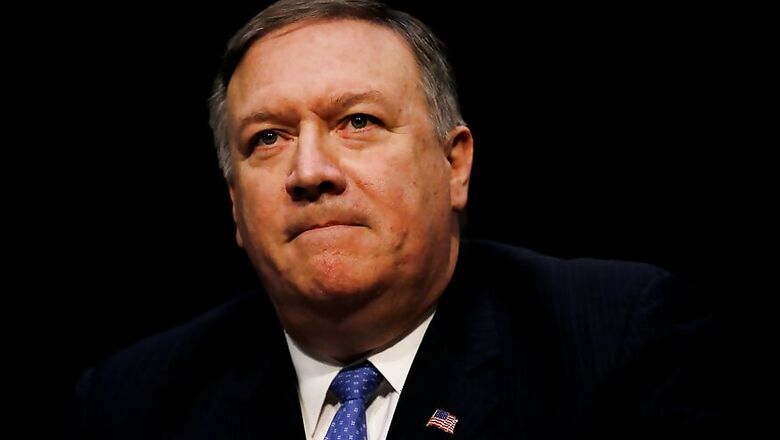
views
Washington: Continuing its clampdown on China's official media, US Secretary of State Mike Pompeo on Monday put a cap on the number of Chinese citizens permitted to work for their five official outlets in America at any given time.
Xinhua News Agency, China Radio International, China Global Television Network and China Daily have been asked to reduce their Chinese employees from 160 to 100, a senior State Department official. They have been asked to comply with the new limits by March 13, the official said. The cap applies to the five Chinese state media entities operating in the US that have been designated as foreign missions, recognising that they are effectively controlled by the Chinese government, Pompeo said on Monday.
"Unlike foreign media organisations in China, these entities are not independent news organisations," Pompeo said and alleged that for years, the Chinese government has imposed increasingly harsh surveillance, harassment and intimidation against American and other foreign journalists operating in China. President Donald Trump has made it clear that Beijing's restrictions on foreign journalists are misguided, he said adding that the US government has long welcomed foreign journalists, including Chinese journalists, to work freely and without threat of reprisal.
"The US government is today instituting a personnel cap on certain PRC-controlled state media entities in the United States specifically, the five entities that were designated by the US State Department on February 18, 2020, as foreign missions of the People's Republic of China," he said. "This cap limits the number of Chinese citizens permitted to work for these organisations in the United States at any given time," Pompeo said. He said that the decision to implement this personnel cap is not based on any content produced by these entities, nor does it place any restrictions on what the designated entities may publish in the United States.
"Our goal is reciprocity. As we have done in other areas of the US-China relationship, we seek to establish a long-overdue level playing field. It is our hope that this action will spur Beijing to adopt a more fair and reciprocal approach to US and other foreign press in China," he said. Pompeo urged the Chinese government to immediately uphold its international commitments to respect freedom of expression, including for members of the press. A senior administration official told reporters that there is an assault on free speech inside of China that goes even beyond what it was a decade ago.
"According to the Foreign Correspondents Club of China, we've also seen the expulsion of nine foreign journalists from China since 2013. Now, to put that into perspective, even the Soviet Union used expulsions sparingly at the height of the Cold War, as contrasted with Beijing today," the official said. Foreign reporters who have been expelled tend to be reporters who have reported on topics that are critically important to an international audience, the official said. For example, the Chinese Community Party's indoctrination camps and the use of forced labour to export products to US consumers; high-level corruption and the ways that wealth and power are employed by top leaders, sometimes against the interests of American business; how a virus first started spreading.
"So it's really no accident also that the expelled foreign journalists are ones who speak Chinese language very well," said the official who spoke on condition of anonymity. The United States on the other hand has issued 3,000 I-visas to Chinese nationals working in the media space, since 2015. By contrast, US news outlets have only about 75 American or other non-Chinese citizens working for them inside of mainland China.
Also, the visas that we issue to Chinese propagandists have no duration of stay. They can stay indefinitely on those visas. By contrast, Beijing currently imposes duration of stay on all foreign reporters in China, some as short as 30 days. So, after 30 days, some reporters have to reapply for an extension, the official said. "So one step that we'll be announcing in the near future is establishing limits on duration of stay for PRC nationals coming to the United States on I-visas, which are the category for representatives of foreign media," the official said.
This merely creates some degree of reciprocity for foreign journalists in China who are increasingly getting these shorter and shorter durations of stay based on, frankly, how much Beijing dislikes their reporting, the official noted.




















Comments
0 comment